About us
The Office of the Los Angeles County Counsel was established pursuant to the County Charter and State Constitution in 1913. The County Counsel is an appointed County officer whose duties include providing legal advice and representation to the Board of Supervisors, County officers, County departments and various other public agencies in civil matters.
COUNTY COUNSEL OF LOS ANGELES
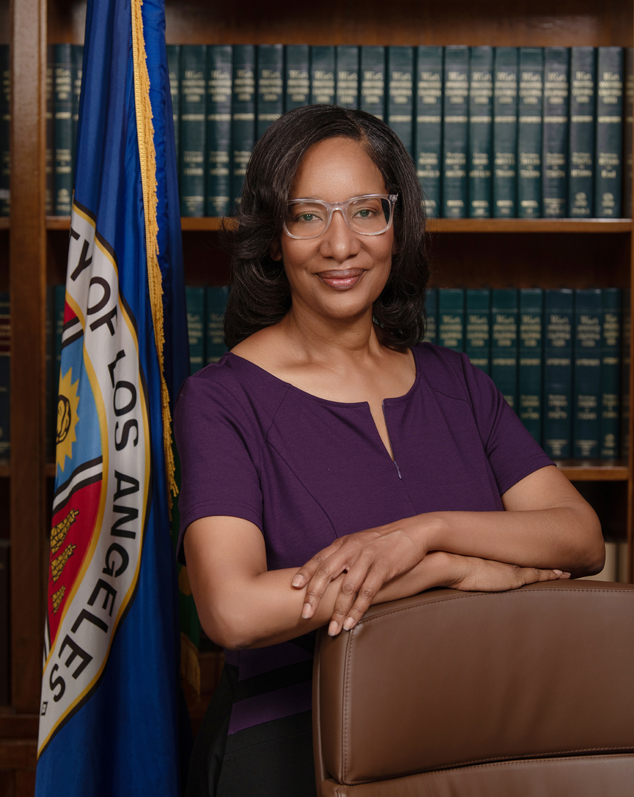
The Office of the County Counsel for the County of Los Angeles provides legal advice to the Board of Supervisors, County departments, and other County entities in the nation’s largest and most diverse County.
I am honored and privileged to serve as the seventeenth County Counsel, and I am humbled to be the first African American County Counsel since the office’s establishment in 1913.
The Office of the County Counsel is one of the largest municipal civil law offices in the country, with over 300 attorneys and more than 600 employees. We have consistently enjoyed the reputation of being among the finest public law offices. Our alumni include judges, legal scholars, and authors, as well as business and political leaders.
Our office uses both individual expertise and a cross-divisional team approach to develop strategies and solutions for our clients. We provide training and professional development opportunities for attorneys and support staff to develop a high level of skill, as well as various opportunities and challenges so the office remains a desirable long-term career choice. We are committed to keeping current with technological advancements so we can more effectively and efficiently serve our clients.
We are a culturally diverse group of talented attorneys privileged to advise our clients on a variety of matters including some of the most critical social issues of our time. As a woman of African American, Mexican American and Native American heritage, I will lead the office as we work together with the Board of Supervisors and county leaders to promote truth and justice, protect the rule of law, and create social and legal reform that considers the experiences of the diverse county residents whose lives will be most impacted by the policies and laws we create.
I encourage you to explore our website to learn more about our mission, history, and organization.
In service,
Dawyn R. Harrison
County Counsel
Vision
To be the Gold Standard
Public Law Office
Mission
- Trusted Partners
- Strategic Thinkers
- Problem Solvers & Solution Builders
- Trusted Partners
- Strategic Thinkers
- Problem Solvers & Solution Builders
Values
- Integrity
- Performance Excellence
- Inclusion, Diversity, Equity & Antiracism (IDEA)
- Collaboration
- Agility & Innovation
- Integrity
- Performance Excellence
- Inclusion, Diversity, Equity & Antiracism (IDEA)
- Collaboration
- Agility & Innovation
Strategic Plan
Click to View
Our Strategic Plan
DEI Leadership
Seal Program
COUNTY COUNSEL DIVISIONS
HISTORY OF THE OFFICE OF COUNTY COUNSEL
The Office of the Los Angeles County Counsel was established pursuant to the County Charter and State Constitution in 1913. The County Counsel is an appointed County officer whose duties include providing legal advice and representation to the Board of Supervisors, County officers, County departments and various other public agencies in civil matters.
Los Angeles County is the most populous county in the nation with a population exceeded by only seven states. As the population of the County has grown and as the scope of County government has expanded over the years, the Office of County Counsel has kept pace – growing from a staff of 38 attorneys in 1963 to over 330 attorneys and a support staff of over 275 today.
The Office has consistently enjoyed the reputation of being one of the finest public law offices in the country. Its alumni include judges, legal scholars and authors, as well as business and political leaders. Office alumni include former California Governor, Attorney General and Assemblyman George Deukmejian, retired Signal Oil President and Chairman Forrest N. Shumway, former U.S. Secretary of the Army and State Assemblyman Louis Caldera, former Fair Political Practices Commission Chairman John H. Larson, Presiding Judge Kevin Brazile, Presiding Judge Eric Taylor, and Professor Arvo Van Alstyne, the principal author of the California Government Tort Claims Act.
Since the inception of the Office in 1913, there have been seventeen County Counsels.

Dawyn R. Harrison
Raymond G. Fortner, Jr.
Lloyd W. Pellman
DeWitt W. Clinton
John H. Larson
John D. Maharg
Harold W. Kennedy
J.H. O'Connor
Everett W. Mattoon
Edward T. Bishop
COUNTY & COUNTY COUNSEL LOGO HISTORY
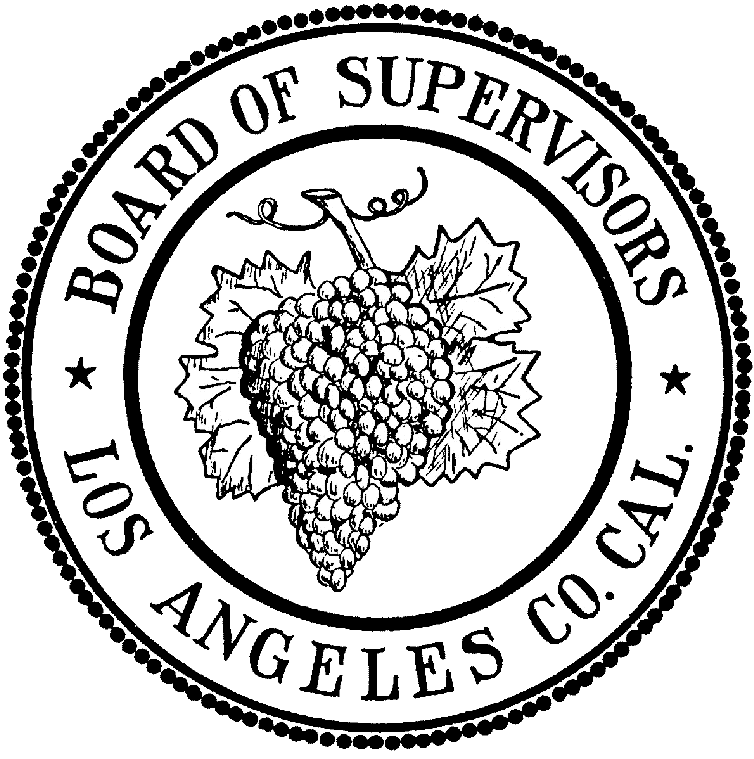
1887-1957
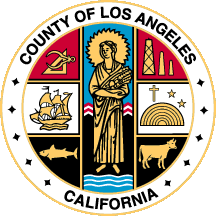
1957-2004
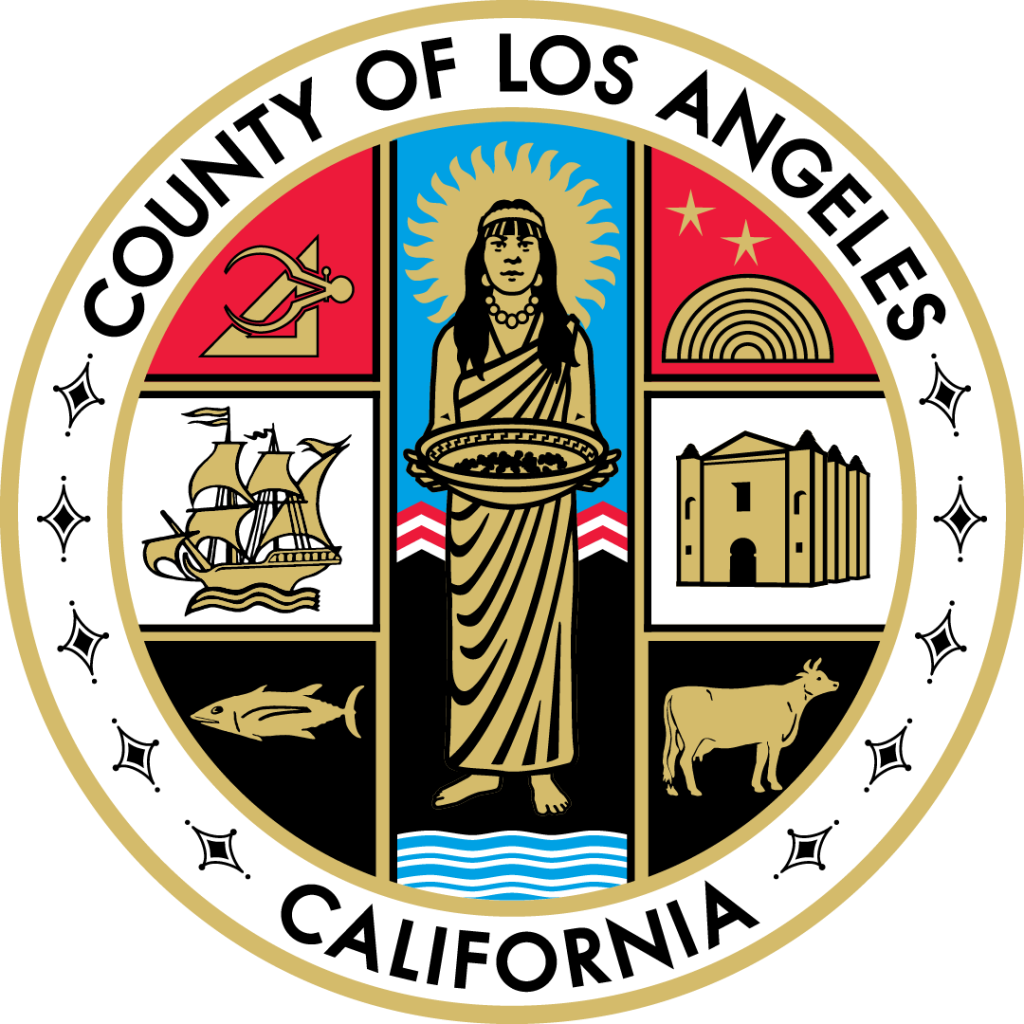
2004-2014
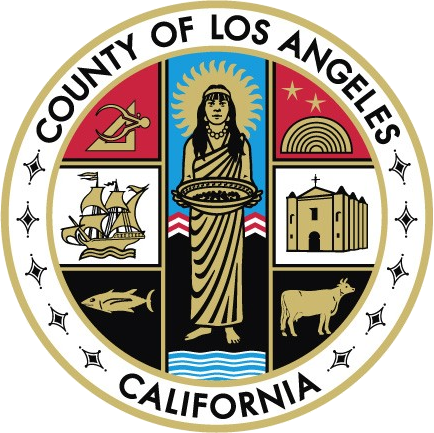
2014-2016

2016-NOW
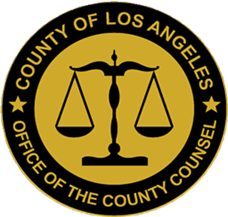
1983-2016
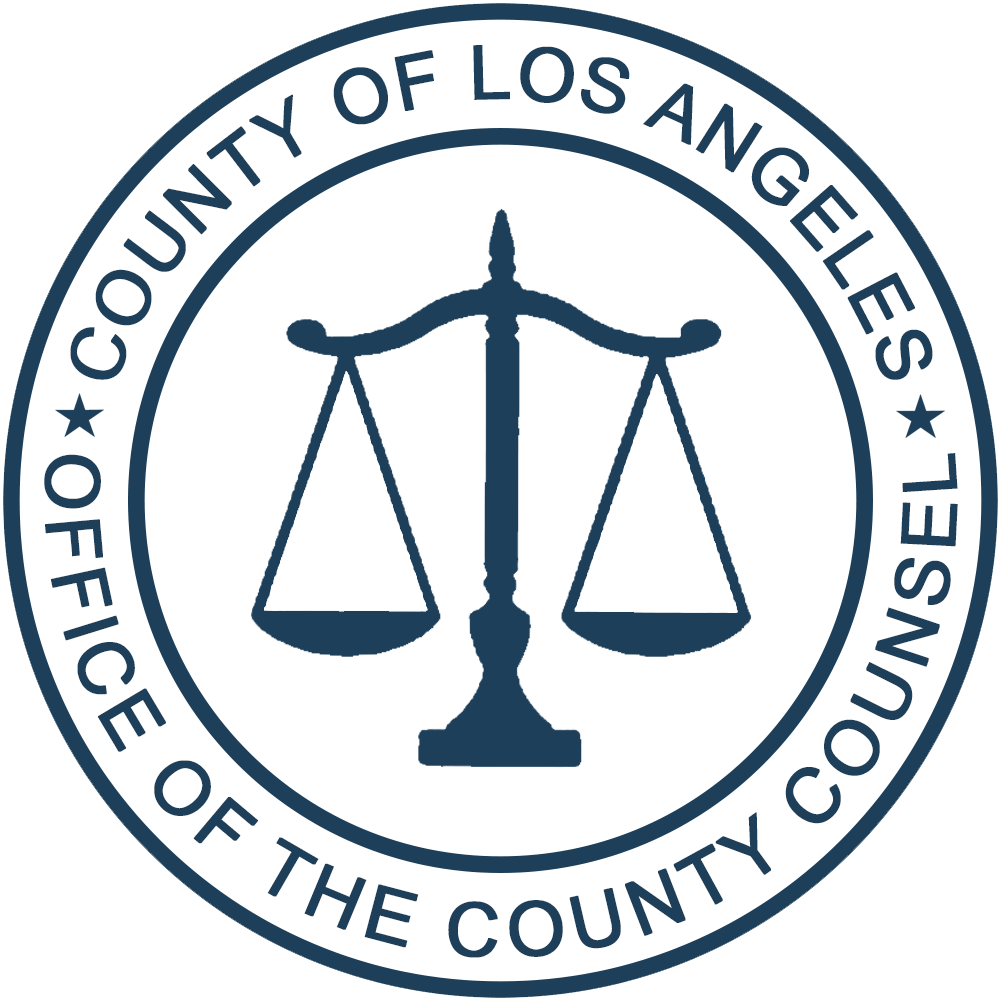
2016-2024

2024-NOW
Los Angeles County is one of the original counties of California. Los Angeles County was established in 1850. The County seal was first redesigned by former Supervisor Kenneth Hahn, drawn by Millard Sheets, and adopted by the Board of Supervisors in 1957. It was modified by the Board of Supervisors in 2004, 2014, and again in 2016. The Office of the County Counsel was established in 1913 and used the County seal as its logo until 1983 when the black and gold scales of justice seal was adopted.






